Tropical Gardening Helpline: How to get fruit from a lilikoi vine
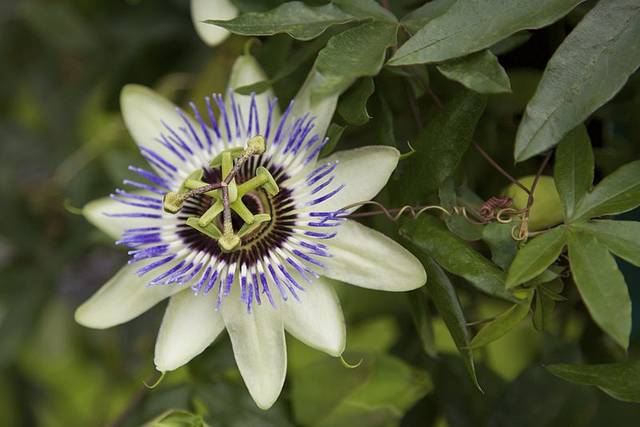
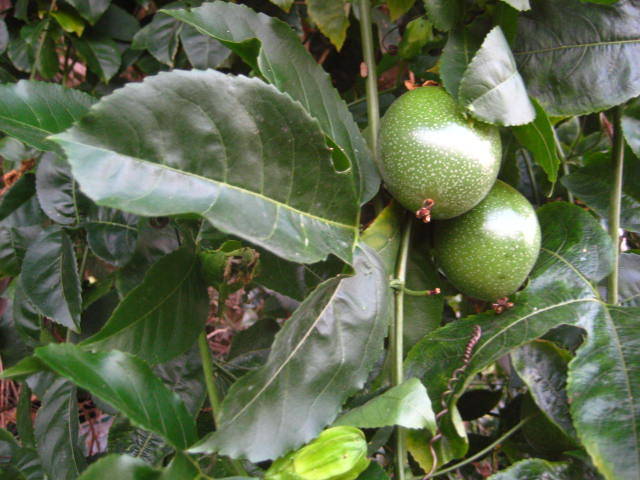
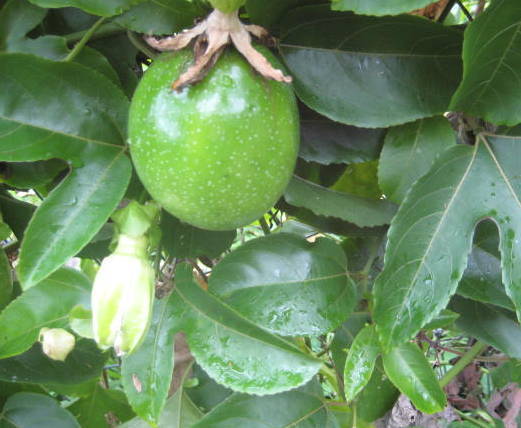
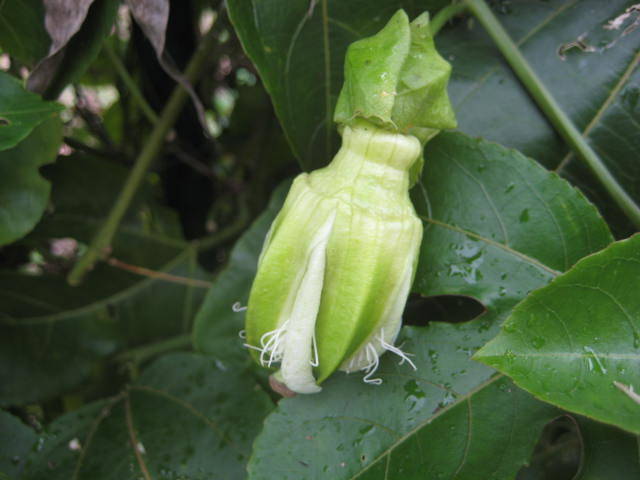

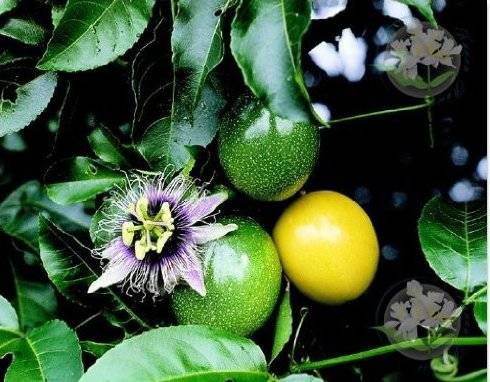
Brenda asks: My lilikoi vine produces a lot of flowers but no fruit. What’s the problem and can I remedy this situation?
Brenda asks: My lilikoi vine produces a lot of flowers but no fruit. What’s the problem and can I remedy this situation?
Tropical Gardener answer: First of all, make sure your passion vine, Passiflora edulis sims, is in an ideal location. At upper elevations they need full sun for the fruit to ripen. Partial shade can protect them from the dry heat prevalent at lower elevations but some sun penetration is necessary.
The plants will thrive where conditions are optimal. They’ll do best where the temperature ranges between 68 and 82 degrees, the soil has a pH between 6.5 and 7 and it drains well. The roots are shallow so be sure they are never in standing water.
Insufficient water can stress a passion vine, causing it not to flower or the flowers to abort. Keep your vine on a regular watering schedule. You can mulch around the plant to retain moisture and add to microbial activity in the soil but be careful to let the roots dry a bit between waterings.
Monitoring pests is also important as pest infested plants can become stressed, which will affect fruit set. If the vine gets attacked by scale, aphids, white fly or other pests, spray the plant with neem and safer soap to kill the insects and de-stress the plant.
Given ideal conditions, other factors that might prevent fruiting on your lilikoi vine include poor pollination or lack of proper fertility.
Most lilikoi vines require biotic pollination relying on live pollinators to move pollen from flower to flower. Pollinators include bumblebees, carpenter bees, wasps, bats and hummingbirds. Some species are also capable of self-pollination.
Passion vines usually need to be pollinated with pollen from a different vine that is genetically compatible. Growing two lilikoi plants close to one another can solve that problem. Pollinators need to cross-pollinate passion fruit flowers in order for fruit to form. A low bee population can be a cause for poor pollination. You can attract bees by planting herbs and other aromatic, flowering plants like lavender. Many trees can also attract bees to the area. Suggestions for bee attracting plants abound on the internet.
The carpenter bee is the most devoted pollinator for most passion vines. They can be encouraged to visit your lilikoi by placing hollow logs near the plants.
If pollinators do not arrive, you can hand pollinate yourself. Use a delicate brush or cotton swab for pollen transfer or simply pick a flower and transfer its pollen to another blossom. The best time of day to do this is in early to mid-morning.
Proper fertility can help with fruiting as well. Too little fertilizer can cause yellow leaves and lack of fruit set. A high nitrogen fertilizer will encourage lush green foliage, but with the plant’s energy going into leaf production, the flowers may not appear or develop into fruit. Applying a well balanced fertilizer twice a year should be adequate. To encourage fruiting, choose a fertilizer with the third number higher than the first two (ex: NPK 10-5-20). It is best to apply fertilizer after pruning the vine in early spring as it’s producing new growth and again when fruiting is finished. Apply in the amounts recommended on the packaging.
Though passion vines don’t really need pruning to fruit, doing so can benefit them. Thinning out the stems can let the sun penetrate the plant, aiding fruit ripening. Lilikoi flowers and fruit develop on new growth. Since pruning produces strong new growth it can encourage fruiting. Prune older stems carefully in early spring but avoid cutting back major branches.
Try some of these recommendations and hopefully, you will soon get fruit on your lilikoi vine.
Diana Duff is a plant adviser, educator and consultant living in a dryland forest north of Kailua-Kona.
Gardening Events
Monday: “Hawaii Tropical Fruit Growers Monthly Meeting” from 7-9 p.m. at West Hawaii Tropical Fruit Growers office 81-6393 Mamalahoa Highway in Kealakekua. White wooden building on makai side across from the Department of Transportation yard. This meeting will be a ‘talk story.’ Come with your latest fruit growing story to share. Bring fruit to share as well. Park in front or on the north side. For more information contact Brian Lievens President West Hawaii Chapter at 895-8753 or greenwizard@hawaii.rr.com.
Tuesday: “2018 Mealani Tea Distribution” from 10 a.m. to noon at UH-CTAHR Mealani Research Station 64-289 Mamalahoa Highway, Waimea. A presentation of a new tea variety unique to Hawaii. Tasting and tea plants offered with Randy Hamasaki and Stuart Nakamoto. Cost is $25. Registration required by calling 887-6183.
Saturday: “Work Day at Amy Greenwell Garden” from 9 a.m. to 12:30 p.m. Meet at the Garden Visitor Center across from the Manago Hotel in Captain Cook. Volunteers will be able to help with garden maintenance and are invited to bring a brown bag lunch. Water and snacks provided. Call Peter at 323-3318 for more information.
Farmer Direct Markets
Wednesday: “Hooulu Farmers Market” 9 a.m. to 2 p.m. at Sheraton Kona Resort &Spa at Keauhou Bay
Saturday: “Keauhou Farmers Market” 8 a.m. to noon at Keauhou Shopping Center
“Kamuela Farmer’s Market” from 7 a.m. to noon at Pukalani Stables
“Waimea Town Market” from 7:30 a.m. to noon at the Parker School in central Waimea
“Waimea Homestead Farmers Market” from 7 a.m. to noon at the Waimea Middle and Elementary School Playground
Sunday: “Pure Kona Green Market” 9 a.m. to 2 p.m. at Amy Greenwell Garden in Captain Cook
“Hamakua Harvest” 9 a.m. to 2 p.m. at Highway 19 and Mamane Street in Honokaa
Plant Advice Lines
Anytime: konamg@ctahr.hawaii.edu
Tuesdays and Thursdays: 9 a.m. to noon at UH-CES in Kainaliu – 322-4893
Mondays and Fridays: 9 a.m. to noon at UH CES at Komohana in Hilo 981-5199 or himga@hawaii.edu


